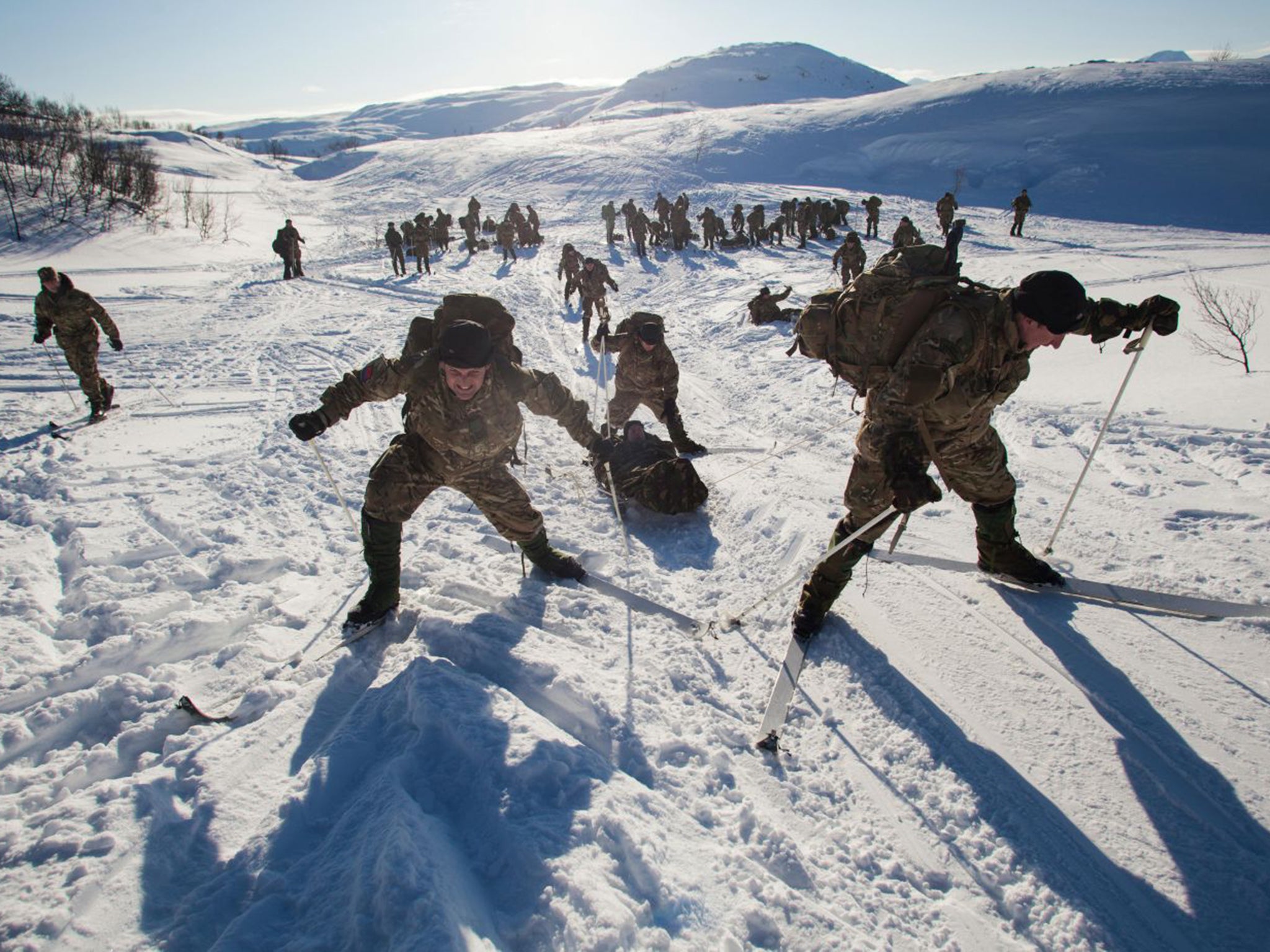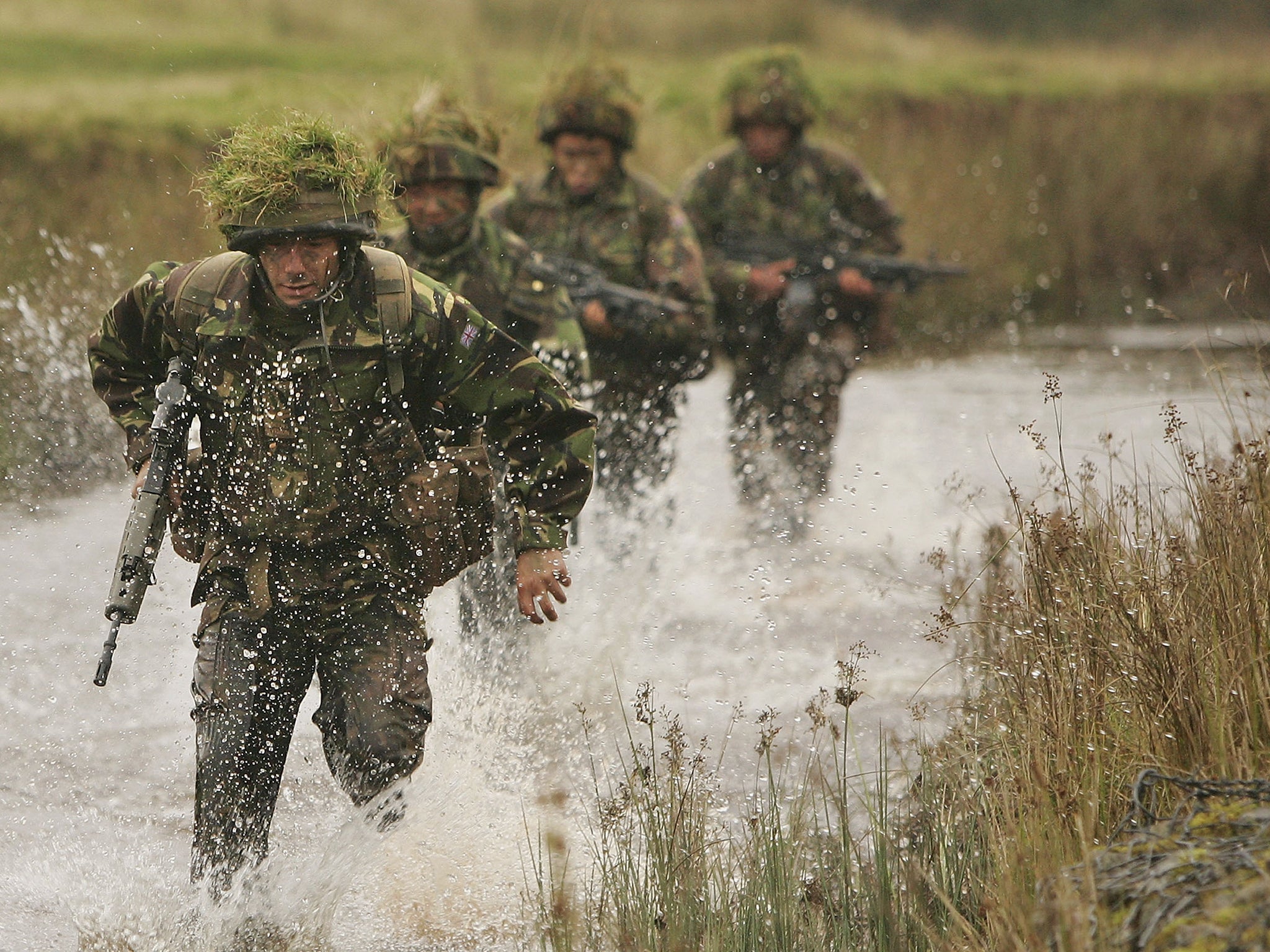MoD negligence 'causes injuries to hundreds of military personnel a year'
MPs to be told Ministry of Defence routinely ignores rules that should have prevented Brecon Beacons training deaths

Your support helps us to tell the story
From reproductive rights to climate change to Big Tech, The Independent is on the ground when the story is developing. Whether it's investigating the financials of Elon Musk's pro-Trump PAC or producing our latest documentary, 'The A Word', which shines a light on the American women fighting for reproductive rights, we know how important it is to parse out the facts from the messaging.
At such a critical moment in US history, we need reporters on the ground. Your donation allows us to keep sending journalists to speak to both sides of the story.
The Independent is trusted by Americans across the entire political spectrum. And unlike many other quality news outlets, we choose not to lock Americans out of our reporting and analysis with paywalls. We believe quality journalism should be available to everyone, paid for by those who can afford it.
Your support makes all the difference.Hundreds of military personnel are injured every year because the Ministry of Defence negligently fails to follow its own safety rules, MPs will hear this week.
The rules, which should have prevented the deaths of three soldiers during an SAS selection course in the Brecon Beacons in 2013, are regularly and routinely ignored. As a result, scores of service personnel are invalided out of the military and paid millions of pounds in compensation. The failure of the armed forces to learn from past mistakes consistently results in the death and maiming of servicemen and women every year, lawyers specialising in military issues will warn a parliamentary inquiry.
The Defence Select Committee investigation into the military’s safety record was prompted by the deaths of three men on an SAS selection course. A coroner later concluded that they died because of a catalogue of “serious mistakes and systemic failures”, amounting to neglect. The inquest was told those running the course were either ignorant of, or failed to follow, the army’s own guidelines.
The inquiry, chaired by Bridgend MP Madeleine Moon, has heard evidence that 131 military personnel died in training or on exercises between 2000 and 2015. This week they will be told that accidents also maim and injure hundreds more.
Philippa Tuckman, of the law firm Bolt Burdon Kemp, said: “The vast majority of injuries suffered by military personnel do not occur in battle … They should properly be seen as accidents at work and the basic principles for avoiding injury are the same as those that apply to any employer who is using potentially dangerous equipment.”
A fellow solicitor, Hilary Meredith, will tell MPs there is currently a higher rate of injury and fatalities while practising for war than in actual combat. Both solicitors, who will give evidence to the committee this week, say the MoD’s failure to prevent large numbers of cold injuries sustained during training exercises in places such as Norway is an example of their inability to learn from past errors.

“We have seen that the low-level neglect or lack of thought given to a procedure that leads to a cold injury can, with different equipment or in different circumstances, cause a fatality on a shooting range or in a vehicle store,” Ms Tuckman said.
She pointed out that the military’s own rules clearly state: “Each year there are significant impacts on health and sometimes deaths as a result of heat and cold injuries amongst Service personnel in the UK and overseas. These are nearly all preventable, provided the risk factors are assessed properly and appropriately managed.”
Cold injuries were particularly common, she said, because preventative measures were not being taken. Troops suffered freezing injuries in conditions where temperatures drop below freezing or in low temperatures that continue for long periods. Inadequate kit or prolonged exposure to cold and wet conditions results in nerve damage and chronic pain, or in extreme cases amputation.
Failure to call off exercises in extreme weather, or to make proper risk assessments beforehand, and ignorance of the effect of wind chill were all common factors resulting in injuries, she said. Other reasons include the provision of inadequate kit or forbidding the use of gloves.
Officers and non-commissioned officers were negligent when they told troops who complained they had lost feeling in their limbs to “man up”, or warned them that evacuation could result in them failing an exercise, Ms Tuckman said.
She questioned whether the MoD and the armed forces learned from accidents and deaths during training and exercises. She and Ms Meredith regularly requested reports of incidents, but had yet to receive any, “from which we conclude that information is neither collected nor collated”.
Ms Meredith, whose law firm is based in Wilmslow, Cheshire, said prosecuting in the criminal courts is one solution: “In the past, the MoD has sought to court martial individuals in charge of training and selection where fatalities occur, but this is not the answer.
“It may be considered appropriate, in circumstances where there is such a disregard for human safety and life that actions become reckless or criminal, to remove the current immunity enjoyed by the MoD and Special Forces, from the Crown immunity to the Corporate Manslaughter and Corporate Homicide Act 2007.”
Allowing a criminal prosecution sent a strong message that actions “verging on a criminal disregard for human safety in training and selection will not be tolerated,” she argued. She said regular checks were required at live firing ranges with safety officers present.
Earlier this year, a young soldier was shot twice through the leg when a house-clearing training exercise went terribly wrong. She said a previous team took down one wooden target and laid it against a wall but failed to replace it in the correct position when they left. The safety team made no checks and were not on site when a second team entered the house. Seeing a target on the inside front wall, the new troops shot at it, resulting in live rounds penetrating the wall of the wood-built house and hitting the man standing outside waiting to enter.
The victim now faced medical discharge, Ms Meredith said.
Such incidents go unreported, as there is no central system in the MoD for the military to access and review past problems, she added.
Join our commenting forum
Join thought-provoking conversations, follow other Independent readers and see their replies
Comments